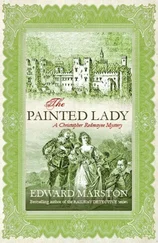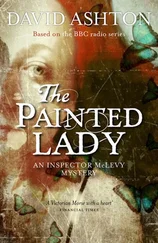Jerzy Kosiński - The Painted Bird
Здесь есть возможность читать онлайн «Jerzy Kosiński - The Painted Bird» весь текст электронной книги совершенно бесплатно (целиком полную версию без сокращений). В некоторых случаях можно слушать аудио, скачать через торрент в формате fb2 и присутствует краткое содержание. Год выпуска: 1965, ISBN: 1965, Жанр: Детская проза, на английском языке. Описание произведения, (предисловие) а так же отзывы посетителей доступны на портале библиотеки ЛибКат.
- Название:The Painted Bird
- Автор:
- Жанр:
- Год:1965
- ISBN:978-0-8021-9575-3
- Рейтинг книги:4 / 5. Голосов: 1
-
Избранное:Добавить в избранное
- Отзывы:
-
Ваша оценка:
- 80
- 1
- 2
- 3
- 4
- 5
The Painted Bird: краткое содержание, описание и аннотация
Предлагаем к чтению аннотацию, описание, краткое содержание или предисловие (зависит от того, что написал сам автор книги «The Painted Bird»). Если вы не нашли необходимую информацию о книге — напишите в комментариях, мы постараемся отыскать её.
The Painted Bird — читать онлайн бесплатно полную книгу (весь текст) целиком
Ниже представлен текст книги, разбитый по страницам. Система сохранения места последней прочитанной страницы, позволяет с удобством читать онлайн бесплатно книгу «The Painted Bird», без необходимости каждый раз заново искать на чём Вы остановились. Поставьте закладку, и сможете в любой момент перейти на страницу, на которой закончили чтение.
Интервал:
Закладка:
After waiting impatiently for Laba and Labina to reappear, the villagers began to jest. He had rushed to her like a buck to a goat, they said, and cold water should be poured over them.
Suddenly the doors of the hut opened and the crowd gasped with astonishment. On the threshold stood Handsome Laba in a suit of unimaginable splendor. He wore a striped silk shirt with a stark white collar round his tanned neck and a garish tie. His soft flannel suit begged to be touched. A satin handkerchief stuck out of his breast pocket like a flower. To this was added a pair of black lacquered boots and, as a crowning glory, a gold watch hanging from his breast pocket.
The peasants gaped in awe. Nothing like this had happened in the history of the village. Usually the inhabitants wore homespun jackets, trousers sewed together from two lengths of cloth, and boots of rough-tanned leather nailed to a thick wooden sole. Laba extracted from his chest innumerable colorful jackets of unusual cut, trousers, shirts, and patent-leather shoes, shining with such luster they could serve as mirrors, and handkerchiefs, ties, socks, and underclothes. Handsome Laba became the supreme object of local interest. Unusual stories went around about him. Various surmises were made about the origin of all these priceless objects. Labina was showered with questions she could not answer, for Laba gave only vague replies, contributing even more to the growth of the legend.
During church services no one looked at the priest or the altar. They all watched the right-hand corner of the nave where Handsome Laba sat stiffly with his wife in his black satin suit and flowered shirt. On his wrist he wore a glittering watch, at which he would glance ostentatiously. The priest’s vestments, once the very acme of ornateness, now seemed as dull as a wintry sky. The people sitting near Laba delighted in the unusual fragrances that wafted from him. Labina confided that they derived from a number of little bottles and jars.
After the Mass the crowd moved into the courtyard of the presbytery and ignored the vicar, who tried to attract their attention. They waited for Laba. He walked toward the exit with a loose, confident stride, his heels loudly tapping the church floor. The people respectfully gave way to him. The richest peasants approached and greeted him familiarly, and invited him to their homes for dinners in his honor. Without inclining his head Laba casually shook the hands outstretched to him. Women barred his way and, heedless of Labina’s presence, hiked their skirts up so their thighs showed and pulled at their dresses to make their breasts more prominent.
Handsome Laba no longer worked in the fields. He even refused to help his wife in the house. He passed his days bathing in the lake. He hung his multicolored clothing on a tree near the shore. Nearby excited women watched his naked muscular body. It was said that Laba allowed some of them to touch him in the shadow of the bushes and that they were ready to commit shameful acts with him, for which a terrible retribution might be exacted.
In the afternoon, when the villagers returned from the fields sweating and gray with dust, they passed Handsome Laba sauntering the other way, carefully stepping on the firmest part of the road so as not to soil his shoes, adjusting his tie, and polishing his watch with a pink handkerchief.
In the evenings horses would be sent for Laba and he would drive off to receptions, often in places dozens of miles away. Labina stayed home, half dead with exhaustion and humiliation, caring for the farm, the horse, and her husband’s treasures. For Handsome Laba time had stopped, but Labina aged rapidly, her skin sagging and her thighs growing flabby.
A year passed.
One autumn day Labina returned from the fields, expecting to find her husband in the attic with all his treasures. The attic was Laba’s exclusive realm and he carried on his breast along with a medallion of the Holy Virgin the key to the large padlock securing its door. But now the house was absolutely still. No smoke poured from the chimney, and there was no sound of Laba singing as he changed into one of his warmer suits.
Labina, frightened, rushed into the hut. The door to the attic was open. She climbed up to it. What she saw stunned her. On the floor lay the chest with its lid torn off and its whitish bottom visible. A body dangled above the chest. Her husband now hung on the large hook where his suits used to hang. Handsome Laba, swaying like a slowed-down pendulum, was suspended by a floral-patterned necktie. There was a hole in the roof through which the thief had carried away the contents of the chest. The thin rays of the setting sun illuminated the pallid face of Handsome Laba and the bluish tongue sticking out of his mouth. All around iridescent flies murmured.
Labina guessed what had happened. When Laba had returned from bathing in the lake to put on his parade suit, he found the hole in the attic roof and the empty chest. All his fine clothes were gone. Only a single necktie remained, lying like a severed flower in the trampled straw.
Laba’s reason for living had disappeared with the contents of his chest. There was an end to weddings at which no one looked at the groom, an end to burials at which Handsome Laba would meet the worshipful gaze of the crowd as he stood above the open grave, an end to proud self-display in the lake and the touch of eager female hands.
With a careful, deliberate movement which no one else in the village could imitate, Laba had put on his necktie for the last time. Then he had pulled the emptied chest toward him and reached for the hook in the ceiling.
Labina never discovered how her husband had acquired his treasures. He never referred to the period of his absence. No one knew where he had been, what he had done, what price he had paid for all those goods. All the village knew was what the loss of his things cost him.
Neither the thief nor any of the stolen objects was ever found. While I was still there rumors circulated that the thief was a cuckolded husband or fiancé. Others believed that some insanely jealous woman was responsible. Many people in the village suspected Labina herself. When she heard of this accusation her face grew livid, her hands shook, and a rancid smell of bitterness came from her mouth. Her fingers clawed, she would hurl herself at the accuser, and the onlookers would have to separate them. Labina would return home, drink herself into a stupor, and hold me close to her breast, weeping and sobbing.
During one of these fights, her heart burst. When I saw several men carrying her dead body to the hut, I knew I had to flee. I filled my comet with smoldering embers, grabbed the precious necktie hidden under the bed by Labina, the necktie on which Handsome Laba had hung himself, and left. It was common belief that the rope of a suicide brings good luck. I hoped I would never lose the necktie.
15
The summer was nearly over. Sheaves of wheat were stacked in the fields. The peasants worked as hard as they could, but they did not have enough horses or oxen to bring in the harvest quickly.
A high railroad bridge spanned the cliffs of a big river near the village. It was guarded by heavy guns set in concrete pillboxes.
At night when high-flying airplanes droned in the sky, everything on the bridge was blacked out. In the morning life resumed. Soldiers in helmets manned the guns, and from the highest point of the bridge the angular form of the swastika, woven into its flag, twisted in the wind.
One hot night gunfire was heard in the distance. The muffled sound washed over the fields, alarming men and birds. Flashes of lightning twinkled far away. People assembled in front of their houses. The men, smoking their corncob pipes, watched the man-made lightning and said: “The front is coming.” Others added: “The Germans are losing.” Many arguments broke out.
Читать дальшеИнтервал:
Закладка:
Похожие книги на «The Painted Bird»
Представляем Вашему вниманию похожие книги на «The Painted Bird» списком для выбора. Мы отобрали схожую по названию и смыслу литературу в надежде предоставить читателям больше вариантов отыскать новые, интересные, ещё непрочитанные произведения.
Обсуждение, отзывы о книге «The Painted Bird» и просто собственные мнения читателей. Оставьте ваши комментарии, напишите, что Вы думаете о произведении, его смысле или главных героях. Укажите что конкретно понравилось, а что нет, и почему Вы так считаете.












